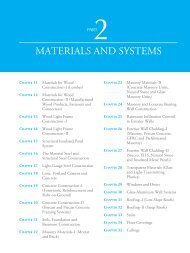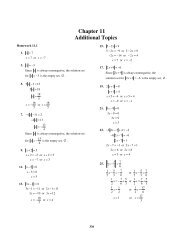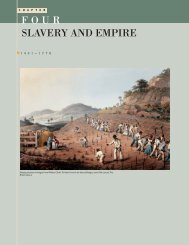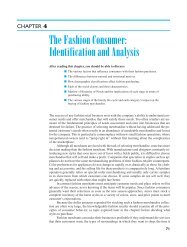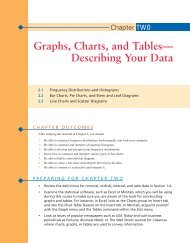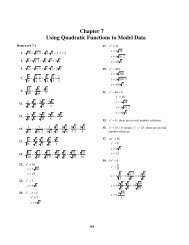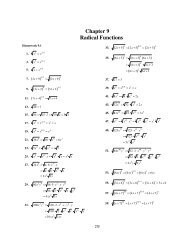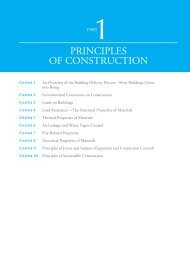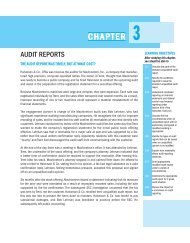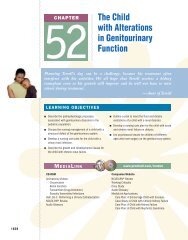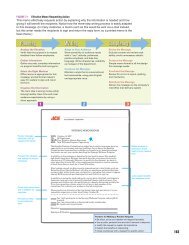Baldwin/Whiteside: Introduction to Contracts - Pearson
Baldwin/Whiteside: Introduction to Contracts - Pearson
Baldwin/Whiteside: Introduction to Contracts - Pearson
Create successful ePaper yourself
Turn your PDF publications into a flip-book with our unique Google optimized e-Paper software.
Chapter Seven<br />
_______________________________<br />
REMEDIES: WHEN THE<br />
CONTRACT IS NOT HONORED<br />
_______________________________<br />
Chapter Seven amplifies on the breach cited in Chapter Six as an example of nonperformance of the<br />
contract.<br />
Common examples we use with respect <strong>to</strong> specific performance are contracts for the sale of a particular<br />
piece of realty and contracts for appearance by a performing artist. A substitute does not a<strong>to</strong>ne for lack of<br />
specific performance.<br />
Since the terms “rescission,” “restitution,” and “reformation” are so similar, you may wish <strong>to</strong> reinforce<br />
them by having the students produce an example for each. Point out that the court is involved in<br />
reformation, whereas the parties themselves may work out rescission and restitution.<br />
Your students will probably be familiar with “injunction.” If you can find an example in your current<br />
news, ask them <strong>to</strong> identify such use of injunction in contract law.<br />
Point out that some damages, such as disclosure of trade secrets, are well-nigh irreparable.<br />
“Mitigate” is an important term. Ask the students <strong>to</strong> construct a scenario based on each of the contracts in<br />
the appendices that illustrates how a party could mitigate that party’s potential damages.<br />
Alert your students <strong>to</strong> look in contracts for liquidated damages.<br />
Suggested Test Questions for Chapter Seven<br />
Aside from the cut-and-dried “list equitable damages” and “list legal damages,” you may wish <strong>to</strong> try<br />
some analysis questions. Here are some scenarios, or you may wish <strong>to</strong> develop your own.<br />
1. Emily Employee leaves Edgar Employer and forms a new company in a non-related field. For<br />
two years, Emily does not use any trade secrets she learned while in Edgar’s employ. During the<br />
third year, Edgar suspects Emily is using such trade secrets in her product. Should Edgar sue?<br />
Answer should discuss: Was there any sort of employment contract between Emily and Edgar?<br />
If so, did it have a noncompete or trade secret clause? Was it in writing? If so, can Edgar produce<br />
a copy executed by Emily? Was a specific period of time mentioned? Were liquidated damages<br />
mentioned? Is it significant that Emily now works in another field?<br />
2. Anthony Agent books Shirley Superstar in<strong>to</strong> [biggest arena in your area] for a one-night concert.<br />
Paul Promoter sells many tickets. Three days beforehand Anthony advises Promoter that<br />
Superstar will be unavailable, but Agent can furnish Patty Potential, an unknown whom Agent<br />
assures Promoter is extremely talented. What can Promoter do?<br />
Answer should mention various options open <strong>to</strong> Promoter. Three-day period gives Promoter<br />
opportunity <strong>to</strong> mitigate damages. Promoter could insist on specific performance by Superstar.<br />
Promoter could accept Potential but require restitution from Agent for all returned tickets.<br />
Promoter could sue Agent and Superstar for breach of contract. Student might also wish <strong>to</strong><br />
discuss situation vis-à-vis Promoter and the big arena in your area.<br />
18



